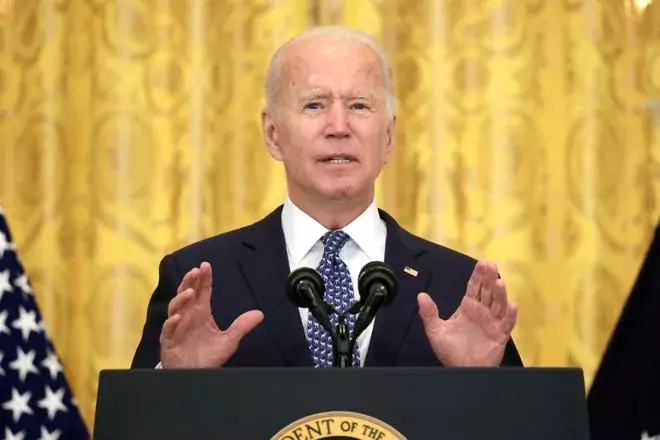Biden’s move comes amid pressure to fulfill his promise to vaccinate the world.
The president plans to propose a “global summit to respond to the coronavirus crisis and boost vaccine supply to the developing world, said three people who spoke on the condition of anonymity to discuss the pending announcement,” Dan and our Post colleagues report.
Mark Dybul, who served as an architect of the President’s Emergency Plan for AIDS Relief (PEPFAR), the largest U.S. initiative devoted to a single disease, said he would welcome such an announcement as a step toward a “fully global response.”
“The U.S. can’t be the only one. We need a global effort,” said Dybul, who has called for a global pandemic task force.

A crisis at home has put less-developed countries on the back burner.
Global health advocates hoped this summer would offer the U.S. relief from the pandemic and give the administration time to turn its attention to the global response. But as the delta variant surged, many say they feel the plight of poorer countries was once again relegated to the back burner.
The announcement that the U.S. would pursue booster shots disappointed some advocates who hoped that the country’s vaccine surplus — including additional deals to purchase 400 million doses this summer — could be directed to global donations. The World Health Organization doubled down yesterday on its call for a moratorium on booster shots until more people around the world have received first doses.
- While more than half of Americans are fully vaccinated, fewer than 3 percent of people in Africa have been vaccinated.
- Covax, an initiative backed by the World Health Organization aimed at equitable vaccine access, recently downgraded its projected vaccine supply for 2021 by more than a quarter.
“Unfortunately, it feels like global vaccine access and equity has always been a bit of a back-burner issue for the administration. In June and July, there was a feeling of ‘Mission accomplished. We can start doing vaccines around the world,’ ” said Rachel Silverman, a policy fellow at the Center for Global Development. “Now we’re having a secondary surge at home. There’s this talk about boosters.”
The past few months have seen an increase in U.S. commitments to the global response.
- Last month, the U.S. began shipping the first of the 500 million Pfizer doses purchased by the Biden administration as part of its pledge to countries in need. The country has already delivered 130 million donated doses.
- Last week, the White House promised that it would invest $2.7 billion to ramp up domestic vaccine production, a move which Jeff Zients, Biden’s coronavirus response coordinator, said would help the U.S. “deliver on its commitment to be the arsenal of vaccines for the world.”
The U.S. is also supporting partnerships aimed at ramping up vaccine manufacturing in South Africa and India. Administration officials are quick to point out that they are donating more than any other country in the world. The United Kingdom takes a distant second on that front, committing 100 million doses, according to data from the Duke University’s Global Health Innovation Center.
But some advocates argue the U.S. isn’t doing enough.
The fact that wealthy countries fought to get in the front of the line for vaccine purchase prevented many poorer countries from buying shots, even as some doses sit unused in freezers. And the U.S. has been reluctant to use its patent on a component of mRNA technology to pressure vaccine makers to share it with manufacturers in other countries.
“We’re patting ourselves on the back for doing the bare minimum and doing more than any other country, but that’s not a great mark,” said Matthew Rose, the head of U.S. policy at the Health Global Access Project. “If everyone’s failing, then we’re all failing together. We’re just the head of the people failing.”
Here’s how lawmakers and advocates want to change that:
There’s an effort underway to boost funding for global vaccine supply.
More than 100 members of Congress sent a letter to Biden last month urging his support in securing $34 billion in the massive $3.5 trillion bill moving on Capitol Hill. (Biden has instead called for $15 billion to prepare for future pandemics.)
“Unless we vaccinate the entire population, we are not going to be able to control covid-19 at home,” Rep. Pramila Jayapal (D-Wash.) told The Health 202.
Global health advocates want the U.S. to spend its money faster.
The nonprofit health advocacy group PrEP4All released a report last month claiming that, of $16 billion authorized in the American Rescue Plan to boost manufacturing of PPE, vaccines and therapeutics, only a small fraction has been spent on boosting vaccine supply.
A White House official said that close to all of that funding has been designated, including the $2.7 billion announced for vaccine production and another $3 billion aimed at discovering and producing antivirals. Many awards have been finalized or are in the final stages, the official said.


